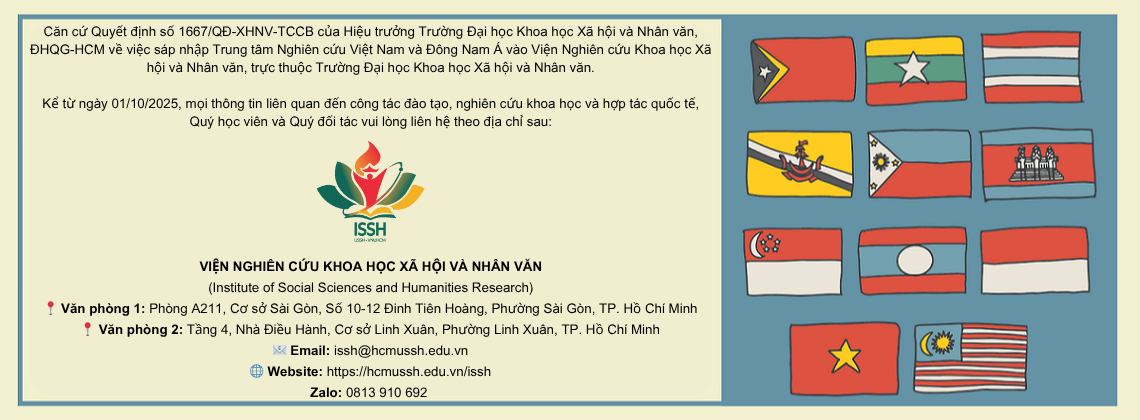ASEAN WITH THE ISSUE OF REFORM: MAKE USE OF ADVANTAGE TO THRIVE
, 13/01/2017 14:01TTO – The Association of Southeast Asian Nations (ASEAN) is trying to adjust the balance between state-owned enterprises and multinational companies, but dealing with this issue requires discretion and alertness.
A number of issues relating to integration and restructuring of ASEAN were under discussion at the inaugural international conference “Trade, Industrialization and Structural Reforms in ASEAN” jointly organized by the Center for Vietnamese and Southeast Asian Studies, Ho Chi Minh City University of Social Sciences and Humanities, and the Center on Asia and Globalization, Lee Kuan Yew School of Public Policy, National University of Singapore on January 09-10, 2017 in HCM City.
Dr. Kikuchi, Lee Kuan Yew School of Public Policy, addressed at the conference
Initiating reforms for a big game
At the conference, experts and scholars took Vietnam as a particular example of the relationship between state-owned enterprises and multinational firms, which is really a high spot, given the context that ASEAN has more and more confirmed its status to political and economic affairs worldwide.
The year 2016 witnessed ASEAN reflecting its role as a community, and the Southeast Asian countries became the center point of large-scale trade deals such as the Trans-Pacific Partnership Agreement (TPP) and the Regional Comprehensive Economic Partnership (RCEP).
“ASEAN will definitely be affected by the new conjuncture since it’s located between India and China, two booming economies these days”, said Dr. Vu Minh Khuong from the National University of Singapore.
Prof. Eric D. Ramstetter from the Asian Growth Research Institute (Japan) had a presentation on the importance of state-owned businesses and multinational corporations to Vietnam’s economy.
Taking Vietnam as a case study in his research, Prof. Ramstetter said that since the country’s economic reform and its implementation of open-door policies in 1986, multinational companies have played an increasingly important role in Vietnam’s economy, bringing larger export than before.
Business data show that stock of state-owned enterprises has shrunk in order to clear the way for foreign businesses.
This is an approach that needs paying more attention to, requiring the ASEAN countries’ governments to be prepared so as to adopt the current trend in integration.
“Regardless of the TPP’s prospect and the RCEP’s potential, there have been trade deals which were already agreed on among ASEAN, Japan, as well as other countries in the region.
As a result, multinational corporations will have a more significant position, which requires those nations to implement open-door policies in order to create favorable conditions for this trend”, Dr. Tomoo Kikuchi, professor at the Lee Kuan Yew School of Public Policy, told Tuoi Tre.
Difficulties ahead
According to Dr. Vu Minh Khuong, challenges to ASEAN in its process of reforming and restructuring lie in the domestic issues of each country, whereas each member’s strengths are also different.
“For example, Vietnam has been open and integrative to a large extent, but still faces obstacles with countries aimed at long-term goals. Indonesia’s policy is to attract a great number of intellectuals, which is worth of complimentary remarks, yet it tends to be more closed than the rest in the region.
Meanwhile, the Philippines has a distinct political system. Even Singapore, although strongly developed, is having problems with its small area and motivation after nearly reaching a high level of advancement”, said Dr. Vu Minh Khuong.
Scholars are optimistic about the efficacy of Vietnam’s open-door policy, one of the key factors helping the country catch up with the others and become one of the six most developed ASEAN countries up to 2016.
According to Dr. Tran Dinh Lam – Director of the Center for Vietnamese and Southeast Asian Studies, in order to maintain such a status, it is essential to call for the whole country’s cooperation and mobilization of every source to boost its internal strengths.
“Before TPP, Vietnam already had the idea of being open and promoting integration. So in the new era, its domestic powers continue to play a leading role. Those include developing humans, self-improving quality, advancing science and technology, and sustaining a supportive business environment to prove attraction and enhance its status.
Another important point is that Vietnam, as well as ASEAN, needs to maintain a peaceful environment for economic growth”, said Dr. Tran Dinh Lam.
|
Dr. Vu Manh Khuong: Open door to prosper, not only to be better-off We should not think that we are all done after opening door at all costs to generate income and create more jobs. By doing so, we are only better-off, not prosperous. At a higher level, Vietnam, as well as ASEAN, needs to make use of the advantages of learning from multinational companies’ science, technology, and practices, creating a stepping-stone to more remarkable developments. If Vietnam or ASEAN provides every favorable condition for taxation to welcome multinational corps with the only purpose of looking for more markets and jobs, we will be very likely to depend on them. Instead, that should be turned into a win-win situation. The ideal approach for development is when we are able to adopt those multinational enterprises’ technology and turn them into an incentive to improve our workforce and infrastructure. When we attract multinational companies, to what extent we make concessions or provide support for them and what kind of technology we ask them to share with us poses an important policy-related problem. In order to solve it, we need to have capable hands that can set up plans and show a proper understanding of multinational firms, not to welcome and make concessions at all costs. |
NHAT DANG - Tuoi Tre Newspaper














